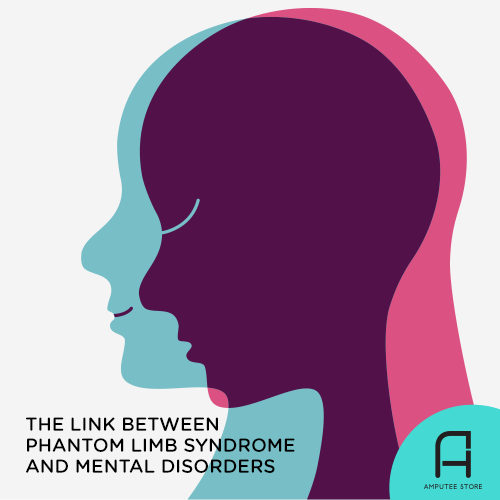The Link Between Phantom Limb Syndrome and Mental Disorders
Phantom limb syndrome is a condition in which patients experience sensations, painful or otherwise, in a limb that doesn’t exist. It can be a debilitating condition that makes the road to recovery challenging. Furthermore, there seems to be a connection between the presence of phantom limb syndrome and the development of one or more mental disorders.

A study published in September 2022 in the International Journal of the Care of the Injured examined the relationship between phantom limb syndrome and phantom limb pain and the presence of physical and mental comorbidities.
Researchers conducted a retrospective cohort study, analyzing the medical records of patients who underwent below-knee amputation in the PearlDiver database. They evaluated the presence or absence of phantom limb syndrome in the patients. After accounting for the patients’ Charlson Comorbidity Index score, sex, and age, the researchers conducted a matched bivariate analysis to assess if the presence of phantom limb pain was associated with increased mental disorders.
The researchers examined the data of 44,028 patients with below-knee amputation. Of the total number, 42,493 or 95% of patients did not develop phantom limb pain, while 1,535 or 4.8% of patients developed phantom limb pain.
They also found that phantom limb syndrome was associated with increased odds of a coexistent generalized anxiety disorder (GAD), lower back pain, major depressive disorder, obesity, osteoarthritis, osteoporosis, post-traumatic stress disorder, and suicidal ideation.
The researchers concluded that patients with below-knee amputation with phantom limb syndrome exhibit a higher rate of psychiatric comorbidities than those without phantom limb pain. They also found that generalized anxiety disorder, major depressive disorder, post-traumatic stress disorder, and suicidal ideation were prevalent among those with phantom limb syndrome.
Because of these findings, the researchers recommend a multi-disciplinary approach to managing phantom limb syndrome and mental health issues.
Have you experienced mental health issues after experiencing phantom limb syndrome? What are your coping strategies?










































































